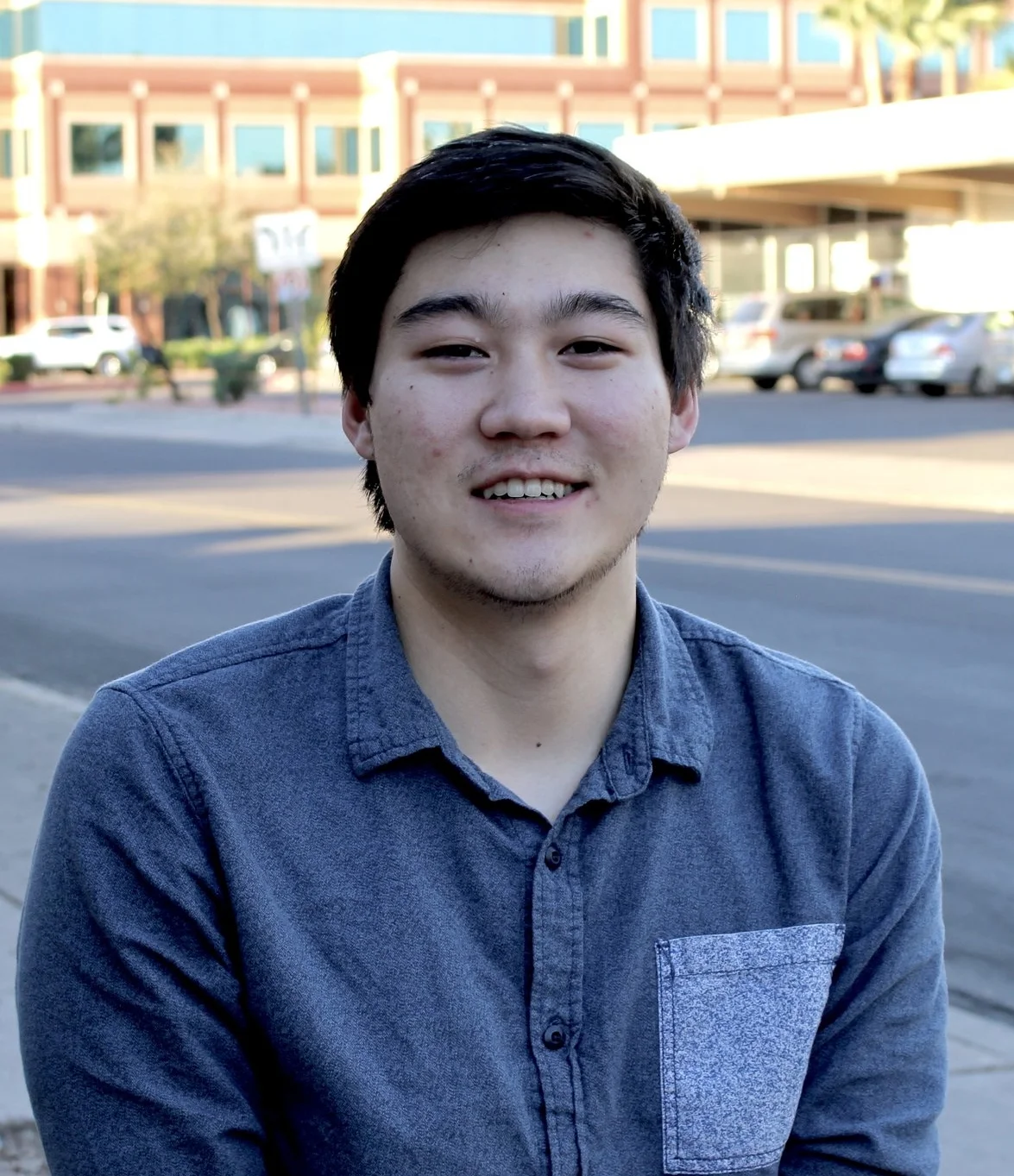A Conservative's Tension in Tempe
Family, faith and food is what Aundrea remembers most about her childhood, and its those values (primarily the former two) that are her visceral forces. The son of a blue collar first-generation Italian-American, her father steadfastly believed that one should not be a slave to your occupation, a belief he instilled in Aundrea. She also speaks passionately about her religion and the role that the Catholic Church played in her life. Her most prominent memory as a child was coming together as a family and going to church on Sundays.
Her faith equipped her with a spiritual guide — a conservative moral consciousness and mindset that simultaneously grounds and drives her. She believes that the most important value her religion has taught her is serving others, of fashioning the world into a better place than she left it. That's why Aundrea decided to study political science. It's why she decided to work for the Governor's office in Arizona. It's why she will eventually run for office and pursue a career in public service.
But to say that Aundrea is a conservative that holds family values and religion dear does not do her justice. When I asked her about her community, she described to me not her church community, but something wholly different.
“I would say my community is not my church community. A big portion of my friends are not white, and none of my friends are catholic. A big portion of my friends are Jewish and Muslim. I’m in a biracial relationship. Although I come from a very conservative, religious an Catholic family, I have consciously made a decision to meet other people and hear their stories.”
Aundrea stressed the importance of diversity to her, and said that this was a hallmark of her community. The biggest point of conflict between her community and her family, she says, are the cultural backgrounds. She laments that her family sometimes thinks a cultural clash exists between her Catholicism and Islam — a clash that stems from a lack of understanding and communication, not necessarily due to of a divergence in values and ideals.
“When you look at a lot of religions, you can’t even distinguish which ones are right or wrong. Family, leading good lives, serving the poor, feeding the hungry: these are some of the important values that all religions teach us. I respect that they don’t go to church every Sunday, and they respect that I do. And I love that.”
Ultimately, however, the largest point of divergence between Aundrea and her community is not their respective faiths, it is their mindsets. She owns her family's conservative mindset, one that she strongly holds dear as a part of her political consciousness. Her friends, on the other hand, are firm in their liberal beliefs — a divergence that is apparent in her relationship with them.
“Conservatism means maintaining a moral construct. That’s the agenda of a conservative mindset: maintaining a moral high ground. I would say conservative is juxtaposed to liberal. Liberals seek change, they are progressive. They want to continuously be evolving. They are always looking to move forward, while conservatives are always like, ‘hey let’s take it slower.’ I think that’s the difference in the mindset.”
This tension between her progressive community and her conservative family is very palpable in our conversation. As she describes the conflicting sides, I feel both sides tugging at her and see that internal conflict exude into our conversation. There were many points in our conversation where I noticed Aundrea questioning her own dogma, an internal struggle that is more or less representative of the divide between Americans today.
On the other hand, Aundrea also spoke powerfully and passionately about bringing our polarized worlds together. She did not surround herself with peoples from diverse backgrounds and opinions to hide her conservatism, but instead to promote dialogue and challenge her own beliefs. As a future public servant, she hopes to help Americans become truly free: having the right to do something and the ability to accomplish it. Ensuring that, she believes, is not partisan — it is American.








